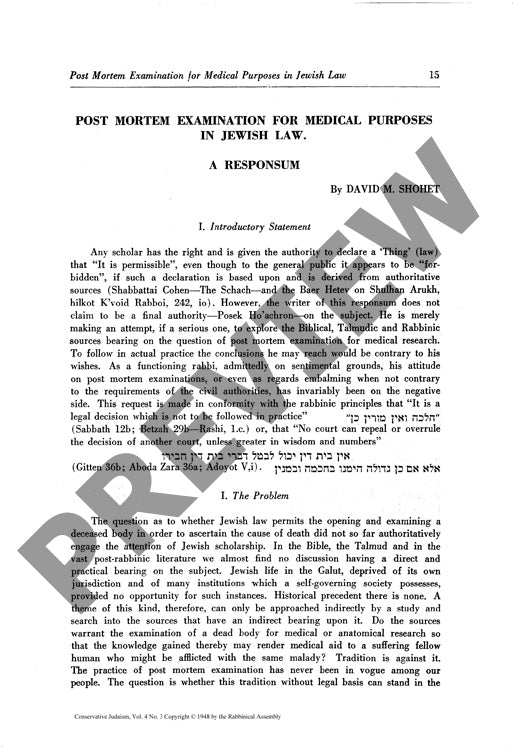Post Mortem Examination for Medical Purp
Couldn't load pickup availability
This responsum examines the permissibility of post-mortem examination for medical purposes under Jewish law through systematic analysis of Biblical, Talmudic, and Rabbinic sources. The methodology involves comparative textual analysis of legal precedents regarding treatment of the deceased, medical obligations, and life preservation principles. The study addresses three primary legal objections: honor due to the dead (Yekara D'shechve), prohibition against deriving benefit from corpses (Met Assur B'hanah), and ritual impurity (Tum'ah). Key findings demonstrate that Talmudic authorities practiced dissection and anatomical examination, as evidenced by detailed knowledge of human anatomy in legal discussions concerning ritual purity, circumcision, and embryology. The research reveals that mutilation prohibitions apply only to relatives, not medical practitioners, and that preservation of life (pikuach nefesh) supersedes most religious restrictions. Historical evidence shows that embalming of Biblical patriarchs involved extensive bodily examination without religious censure. The analysis concludes that Jewish law permits post-mortem examination when conducted for medical advancement and life-saving purposes, as the duty to heal represents a mandatory Biblical commandment requiring modern medical methods. The prohibition against using human remains serves to prevent abuse rather than restrict legitimate medical research, and rabbinical restrictions become invalid when human life and health are at stake.

More Information
-
Physical Description
-
Publication Information
Published 1948
ISBN
-
Publication Credits
David Shohet

